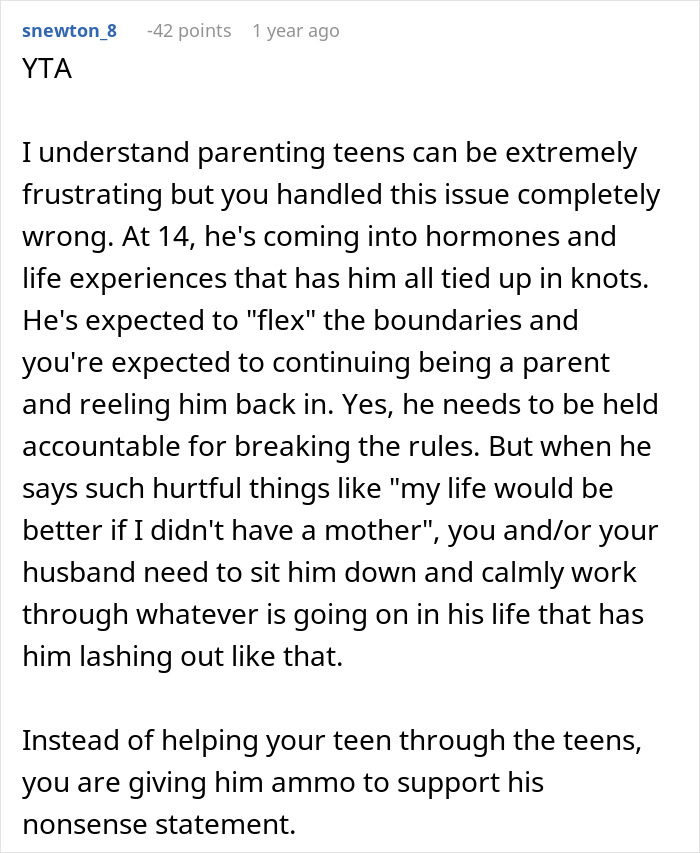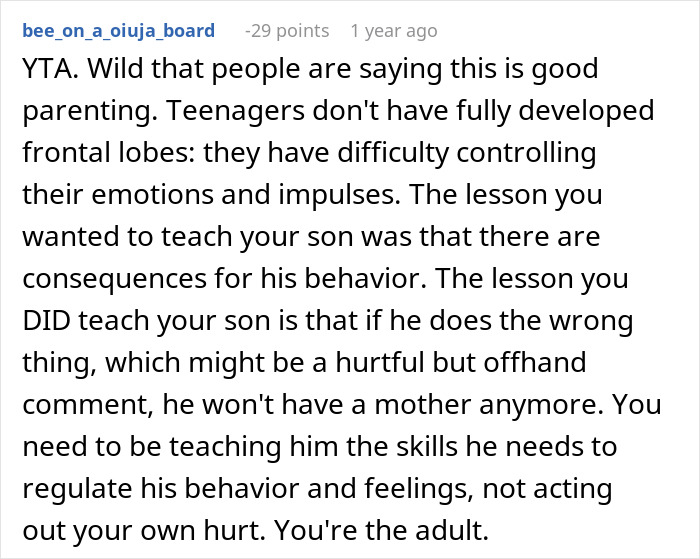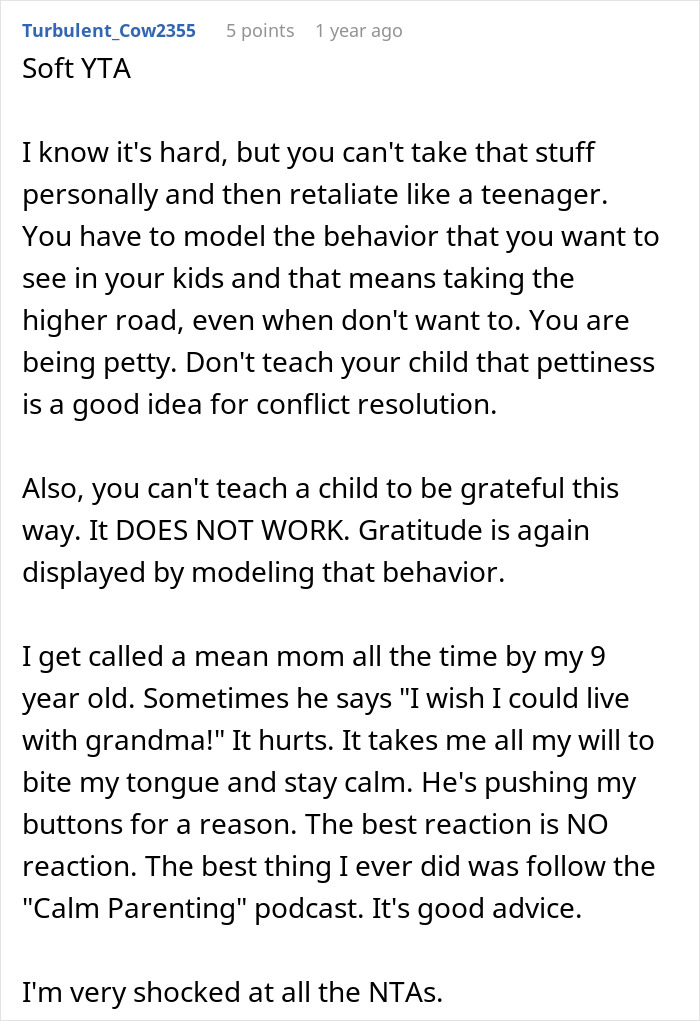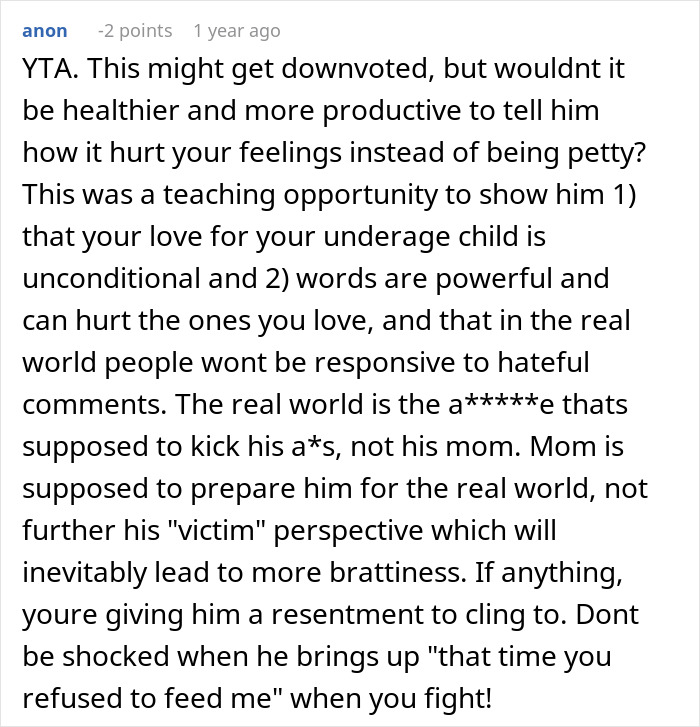Parenting a teenager can be hard. Adolescents lash out at their parents, experience frequent mood disruptions, and act out by exhibiting rebellious behavior. It’s all part of growing up and becoming an adult. It might be the period when kids need their parents the most. Ironically, it’s also when they want to distance themselves as much as possible.
Teenagers can also often speak before they think and hurt their parents. Like this son, who told his mom his life would be better if he didn’t have a mom. Extremely hurt, the mom decided to punish him by refusing to take care of him. But when her mother-in-law called her decision “abusive,” she asked others whether her parenting methods were appropriate.
Adolescence is hard for parents as well as for kids: teenagers face hormonal changes, rapid growth, and social pressures

Image credits: Sébastien Mouilleau / unsplash (not the actual photo)
After this teen lashed out at his mom, she decided to make him regret it
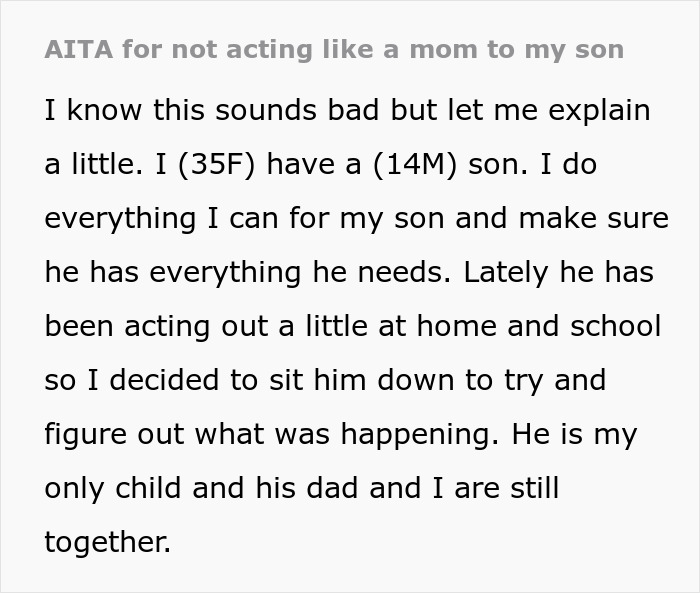
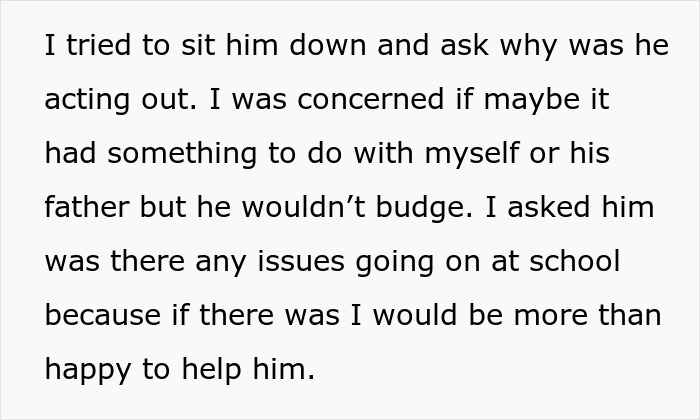
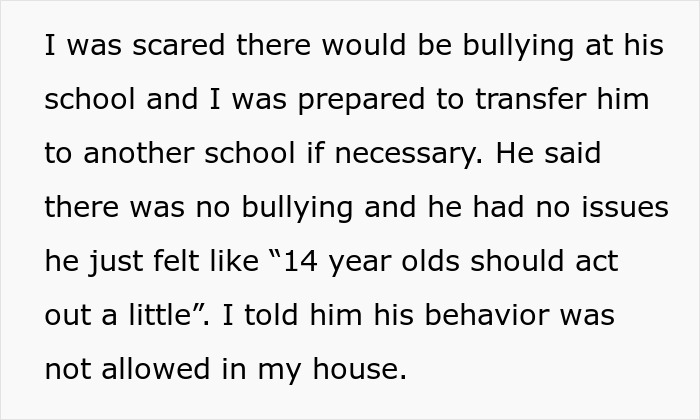

Image credits: Kindel Media / pexels (not the actual photo)
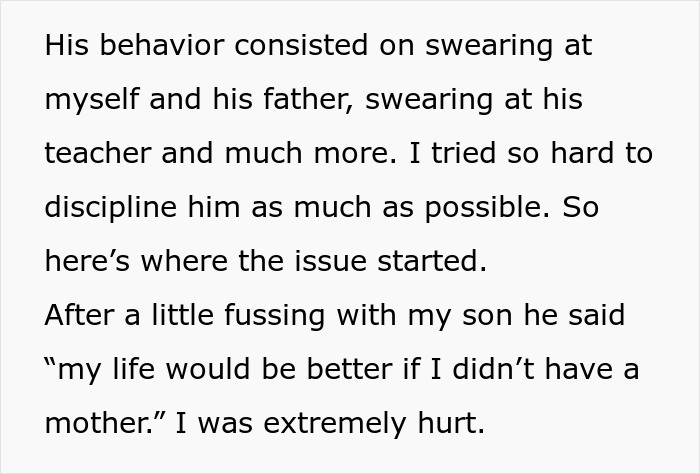
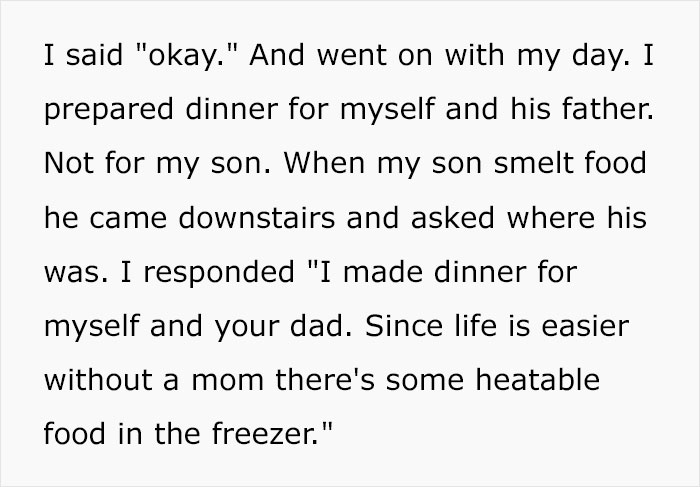
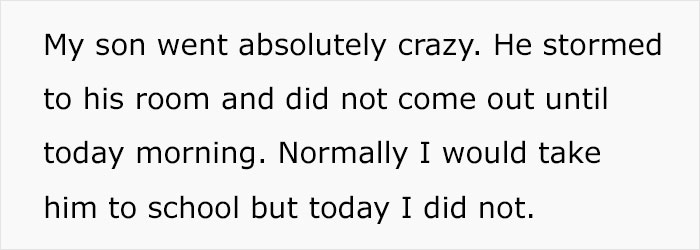



Image credits: Kindel Media / pexels (not the actual photo)
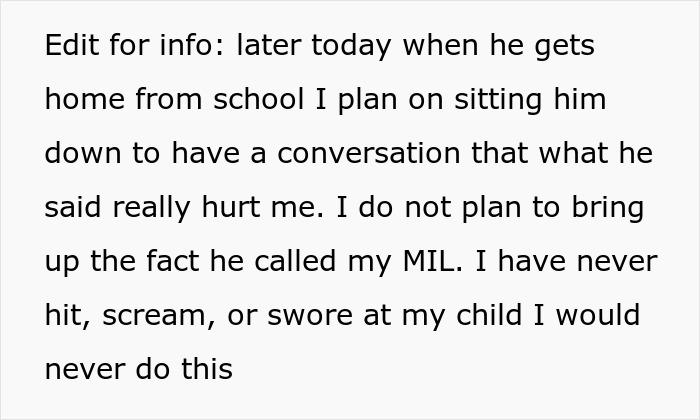
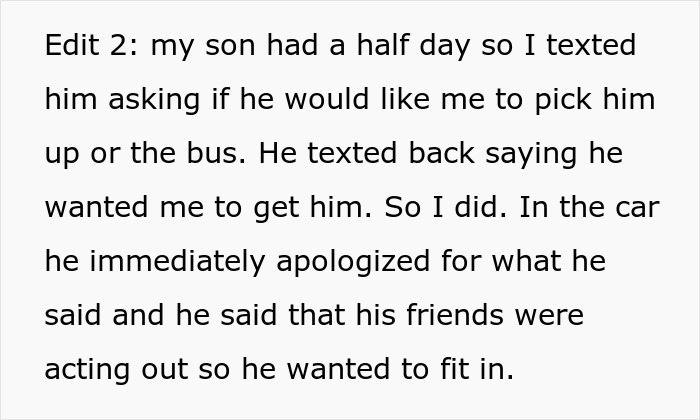
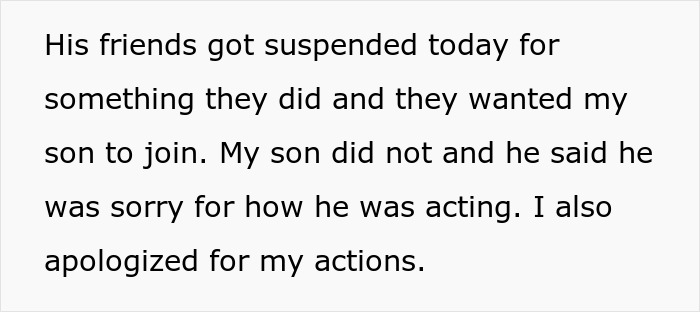
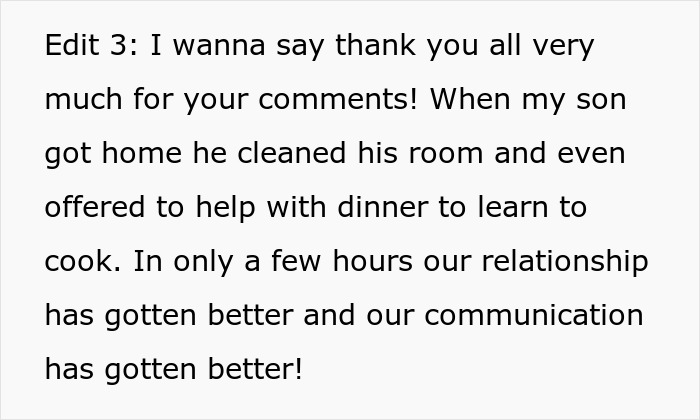
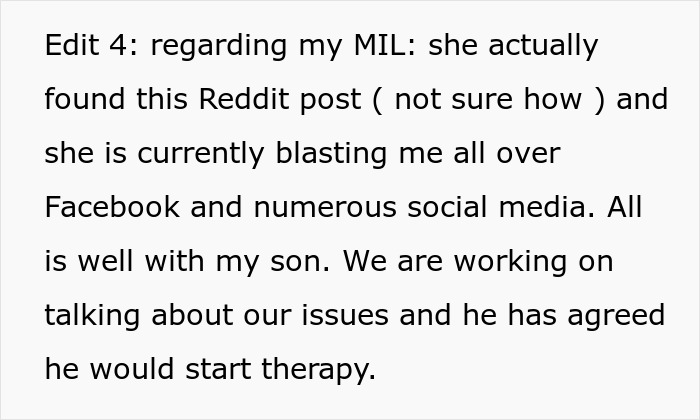
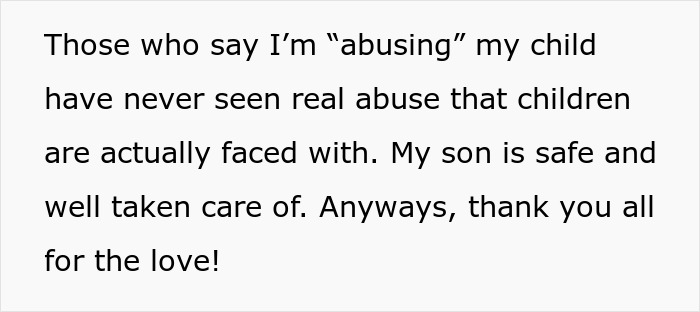
Image credits: anon
Teens can say hurtful things when they have a problem and don’t know how to solve it
Raising teenagers can definitely be a challenge, as evidenced by this story. Teens say all sorts of hurtful things, from “I hate you!” and “I wish you weren’t my mother!” to “I am going to run away!” In the heat of the moment, it might seem like they really mean it.
Yet experts say that they’re usually trying to tell their parents something else when they lash out in this manner. Sara Bean, M.Ed., writes for Empowering Parents that such hurtful words are not about the parents at all. Teens use them when they have a problem and they don’t know how to solve it.
Whether it’s because of stress, anger, or something else entirely, provoking an emotional reaction from their parents can help teens make up for the feeling of discomfort these emotions cause. Ashley Hudson, LMFT, writes that this is sometimes the way teens try to establish their independence.
Teens have a biological instinct to pull away from their parents. It’s a normal milestone in the developmental stage of adolescence, Laura Choate Ed.D., LPC, writes for Psychology Today. In fact, teens might push their parents away because they feel secure in the relationship, and they take it for granted.
However, teens can also use hurtful words because it gives them power. If they see their parents taking their words personally and responding with things like “How dare you speak to me this way?!”, they might want to do it in the future again.
“This tells your child that they’re powerful—and have power over you—which helps the behavior continue in the future,” Bean claims. “After all, who doesn’t want to feel powerful at least once in a while?”
Punitive measures might not be the way to go, experts say
When a teen starts being mean to their parent, it’s hard not to take it personally. Phrases like “I hate you!” or “I wish I didn’t have a mom!” can trigger feelings of unappreciation for parents. That’s why experts recommend never responding to a teenager lashing out in the heat of the moment.
In addition to having a moment to collect their thoughts, parents would also be showing their kids a good example of regulating one’s emotions. “Showing your teenager that you need space to think clearly and allow yourself to calm your nervous system is great modeling,” Ashley Hudson observes.
“Tit for tat” is not an appropriate plan here either. Snapping back at the teen signals to them that emotional immaturity is okay. “Saying something hurtful in response sends your child the message that you are not in control,” Sara Bean writes. “It shows your child that the way to handle verbal attacks is to launch a verbal counterattack.”
However, as tempting as they may be, punishments might also be off the table. Bean emphasizes that over-the-top punishments or big consequences don’t teach teens the skills they need to manage themselves more effectively in the future.
“It won’t teach them to not say hurtful things to others. Harsh punishments will only teach them to ‘do time’ and will breed resentment towards you,” Bean writes. “Consequences do not always speak for themselves. You have to step up to the plate and be your child’s coach.”
Some people reassured the mom that her discipline methods were appropriate
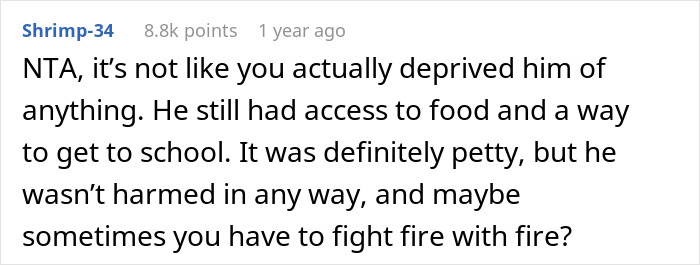
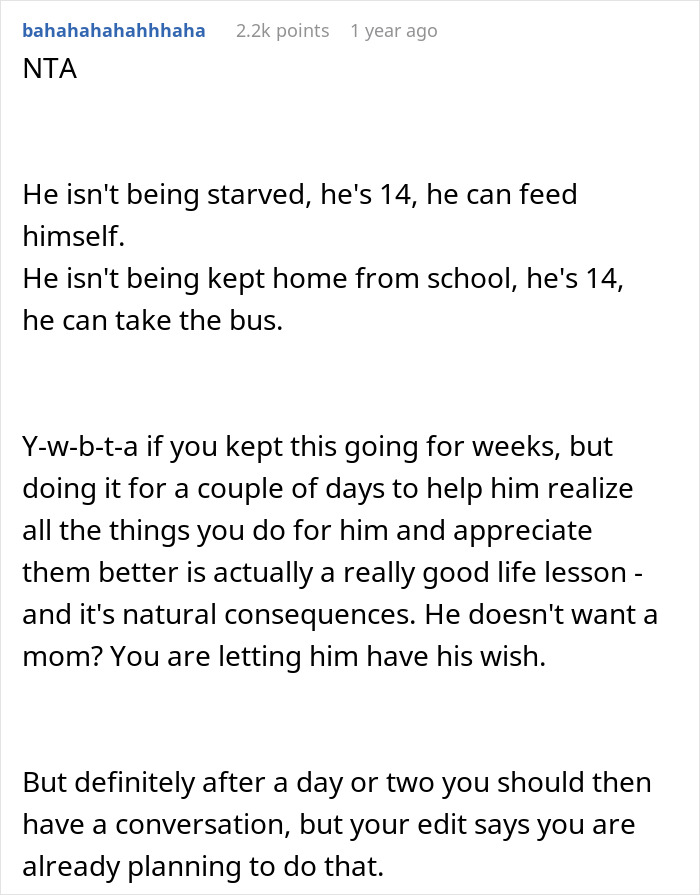

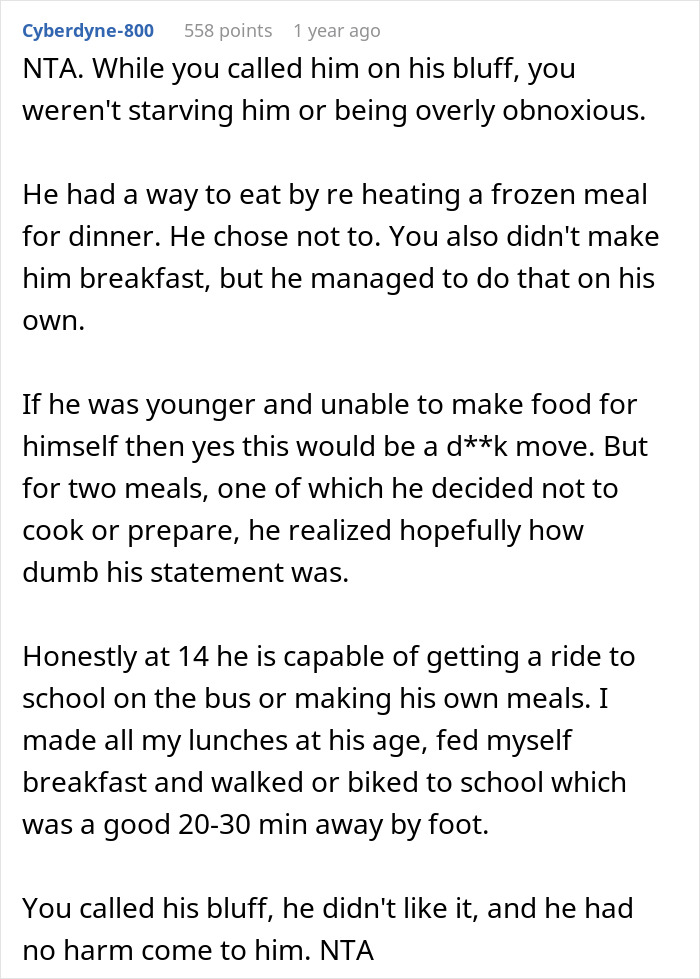
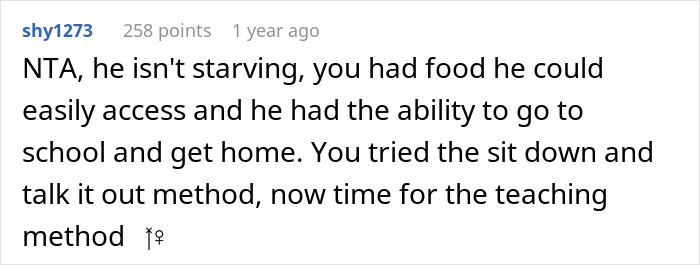
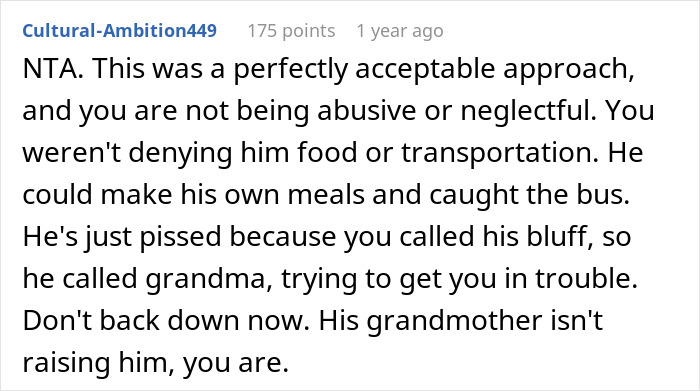
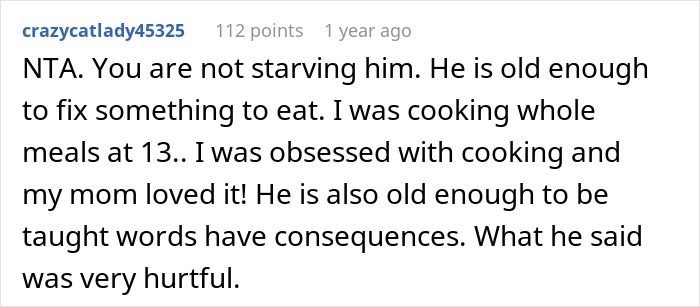

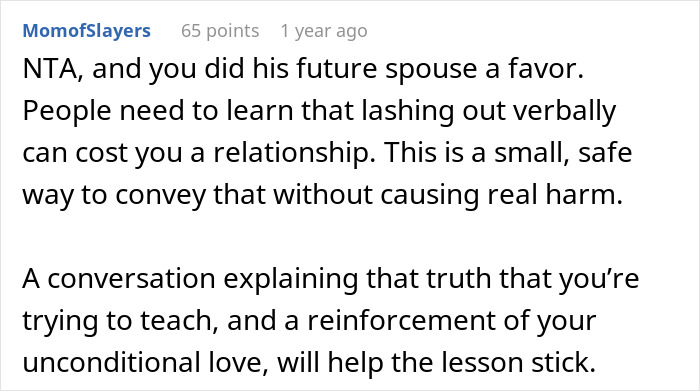

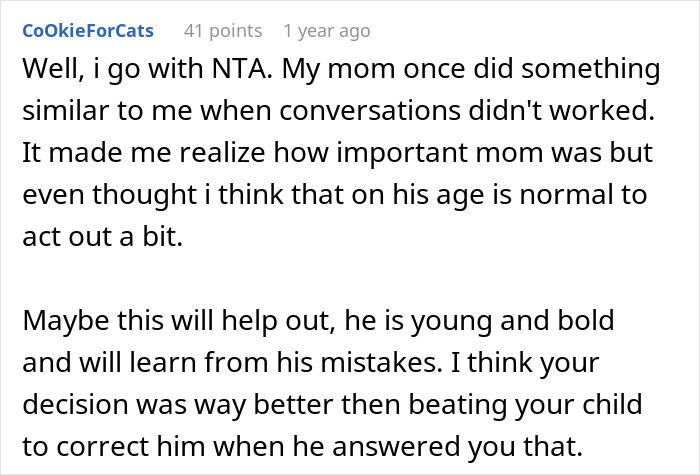
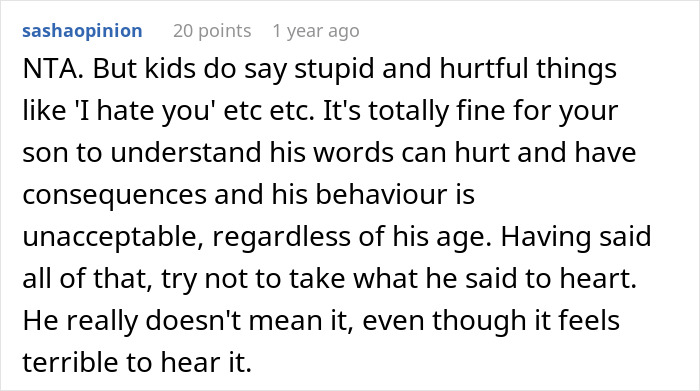
Others believed she was too petty and even manipulative




